
In the ever-evolving landscape of indirect taxation, the introduction of the Goods and Services Tax (GST) in India brought about a paradigm shift in the way businesses operate and comply with tax regulations. One of the significant components of the GST framework is the EWay Bill, a digital document that aims to facilitate the seamless movement of goods across state borders and ensure tax compliance. In this article, we will delve into the intricacies of the GST EWay Bill, its purpose, applicability, benefits, compliance requirements, and the challenges associated with its implementation.
The GST EWay Bill is an electronic document generated for the movement of goods exceeding a specified value, both for interstate and intrastate transactions. It serves as evidence that the goods being transported comply with the applicable tax laws and have been accounted for properly. The EWay Bill is generated online through the GSTN (Goods and Services Tax Network) portal, and it contains essential details such as the invoice number, transporter details, and the vehicle carrying the goods.
The GST EWay Bill is governed by the rules and regulations prescribed under the GST Act. These rules outline the scenarios in which the EWay Bill is required and the procedures for generating, validating, and extending its validity. The applicability of the EWay Bill varies based on the nature of the transaction and the value of the goods being transported. Under the GST EWay Bill rules, any movement of goods exceeding Rs. 50,000 in value requires the generation of an EWay Bill. This value threshold includes the cumulative value of all the goods being transported. It is essential to note that the EWay Bill is mandatory for both interstate and intrastate transactions, except for specific exempted categories.
The implementation of the GST EWay Bill system serves multiple purposes and offers several benefits to businesses, tax authorities, and other stakeholders involved in the supply chain.
The process of generating an E-Way Bill involves furnishing the necessary details about the consignment, such as the invoice number, value of goods, transportation details, and the relevant GST identification numbers. The generator of the E-Way Bill, which can be the supplier, recipient, or transporter, needs to fill in these details accurately on the GSTN portal or integrated E-Way Bill generation platforms.
Once the E-Way Bill is generated, it needs to be validated by the transporter by updating the vehicle number and other transportation-related information. The validation process helps ensure that the goods are being transported as per the details mentioned in the E-Way Bill and that the E-Way Bill is not misused or manipulated during transit.
While the GST EWay Bill is generally applicable to most goods transportation exceeding the specified value threshold, there are certain exceptions and exemptions that businesses need to be aware of.
The implementation of the GST EWay Bill system has not been without its challenges. However, the government and stakeholders have been working towards addressing these challenges and ensuring a smoother implementation process.
Q1: Is the GST E-Way Bill applicable for all types of goods?
A: Yes, the GST E-Way Bill is applicable to most goods exceeding the specified value threshold. However, certain goods, such as live animals and essential commodities, are exempted from the EWay Bill requirement.
Q2: Who is responsible for generating the E-Way Bill?
A: The E-Way Bill can be generated by the supplier, recipient, or transporter, depending on the circumstances of the transaction. It is essential to ensure accurate details and compliance with the EWay Bill generation process.
Q3: What are the consequences of noncompliance with the EWay Bill provisions?
A: Noncompliance with the EWay Bill provisions can result in penalties, vehicle detention, and confiscation of goods. It is crucial for businesses and transporters to adhere to the EWay Bill requirements to avoid legal consequences.
Q4: Can the EWay Bill validity be extended?
Yes, the EWay Bill validity can be extended under specific circumstances, such as transshipment or unforeseen events causing delays. However, the extension needs to be done within the prescribed timelines and as per the rules.
Q5: What are the future enhancements for the GST E-Way Bill system?
A: The future enhancements for the GST EWay Bill system include integration with other tax-related systems and the implementation of real-time tracking and monitoring technologies. These enhancements aim to further simplify compliance processes and improve logistics management.
Q6: Can the EWay Bill be canceled or modified after it has been generated?
A: Yes, the EWay Bill can be canceled or modified under certain circumstances. However, it is essential to note that there are specific rules and time limits associated with canceling or modifying an EWay Bill, and it should be done within the prescribed guidelines.
Q7: Is there a requirement to carry a physical copy of the E-Way Bill during transportation?
A: No, it is not necessary to carry a physical copy of the EWay Bill during transportation. The EWay Bill can be carried electronically, either on a mobile device or any other electronic medium, as long as the relevant details are easily accessible for verification when required.
Q8: What happens if the E-Way Bill expires during transit?
A: If the EWay Bill expires during transit, it is necessary to generate a new EWay Bill with updated details to continue the transportation. The validity period of the EWay Bill should be carefully considered to avoid any disruptions or noncompliance during the transit process.
Q9: Are there any relaxations for small businesses or businesses in remote areas regarding the E-Way Bill requirements?
A: Yes, there are relaxations for small businesses and businesses in remote areas regarding the EWay Bill requirements. Some states have provided exemptions or relaxed rules for businesses operating within a certain distance or for businesses with a turnover below a specified threshold. It is advisable to check the specific rules applicable to the respective state or region.
Q10: How can I track the status of my E-Way Bill or resolve any issues related to its generation or validation?
A: The GSTN portal provides an online platform to track the status of the EWay Bill and resolve any issues related to its generation or validation. In case of any technical difficulties or queries, the GST helpdesk or helpline numbers can be contacted for assistance. It is essential to maintain the reference numbers and relevant details for effective communication with the authorities.
Sandip Kumar(Director)
Nlamnetic Private Ltd.

Exceptional service, prompt execution, and impeccable support. FilingWay Private Limited made my Private Limited Company registration seamless and hassle-free. Highly satisfied !
Shahrukh(Director)
Skuas Pest Control

I've been relying on FilingWay Private Limited for monthly GST filing for my pest control business. Their consistent support and expertise in navigating the complex GST requirements have been invaluable. I highly appreciate their reliable service !
S Arun Shankar(Director)
Coderfriend OPC private ltd.

I am absolutely delighted with the exceptional service I received from FilingWay Private Limited for my One Person Company registration. Their professionalism, attention to detail, and clear communication made the process seamless. With their support, my dream of starting my own company became a reality !
Shivam Prasad(Director)
Soniwalia foods private ltd.

With exceptional finesse and diligent guidance, FilingWay Private Limited expertly handled the Private Limited Company registration for my restaurant. Truly impressed with their expertise and unwavering commitment !